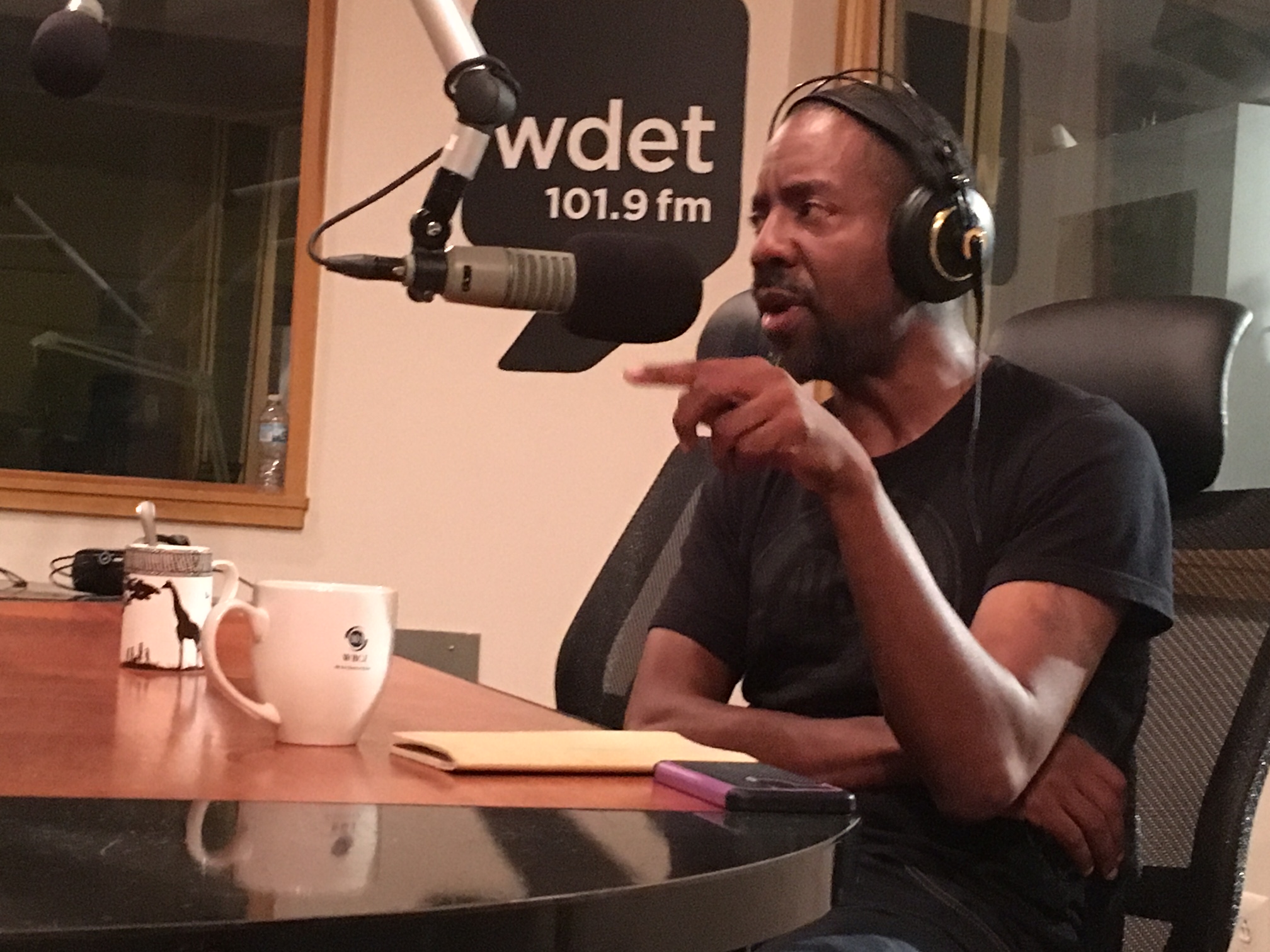The Intersection: Lester Spence On Neoliberalism’s Effect on Black Politics
A conversation about why inequality persists in Detroit, United States.

The oft-repeated Ronald Reagan mantra “government isn’t the solution, government is the problem” continues to resonate across the political spectrum, says Lester Spence.
“But when that ethos gets injected in black politics, it increases the divide of the haves and the have nots,” Spence says.
And that economic divide has grown during the last several decades between whites and African Americans as well.
“We increasingly give resources to people to hustle and take away from people who can’t hustle,” Spence says.
A native of Inkster, Spence is an associate professor of political science and Africana studies at Johns Hopkins University in Baltimore. His latest book is titled “Knocking the Hustle: Against the Neoliberal Turn in Black Politics.” Spence specializes in the study of black, racial, and urban politics of the last several decades.
He joined Detroit Today host Stephen Henderson for a conversation that’s part of WDET’s work with the Detroit Journalism Cooperative looking at what’s happened to race relations and inequality since the urban unrest of the 1960s. Nearly 50 years after this city and others erupted in violence, the Cooperative is exploring whether conditions contributing to that civic unrest are relevant today.
Taking the findings of the Kerner Commission — the White House panel convened to determine causes of the violence in Detroit and other cities in the late 1960s — the DJC is working to determine what, if anything, has changed.
Spence says inequality between blacks and whites has increased since 1970, a dynamic confirmed by much research.
“It’s that uptick that we refer to as kind of the neoliberal turn,” he says. “A number of policies got instituted that basically rolled back the welfare state, that rolled back some things like welfare, that rolled back the ability of governments to collect taxes … and replaced that with an entirely different dynamic.”
The more recent explosion of the number of charter schools, the development of the “prison industrial complex,” and “ending welfare as we know it” are part of a false narrative that’s so popular in America: individual ingenuity – labeled “entrepreneurship” – is what makes people succeed, Spence says.
That philosophy has been injected into liberal politics, creating the neoliberal thought that has grown among the black population, even reaching the churches. “It’s the ‘prosperity gospel’ that changes the bible into a self-help manual,” Spence says.
Politicians reflect the mentality too. “The black elected officials we have are more likely to blame people for their failures than to articulate really progressive causes,” Spence says. “The black attitudes themselves have shifted gradually to the right where they’ve become more conservative.”
Henderson asked Spence what the solution is — how can economic equality be achieved for people of all races?
“There’s no real A to Z. We’re here at A, and Z would be something like reparations. There’s no real pathway,” Spence says. “But the conversation is good because it steers people to think about government being progressive and doing something for folks.”
To hear the full conversation, click on the audio link above.
